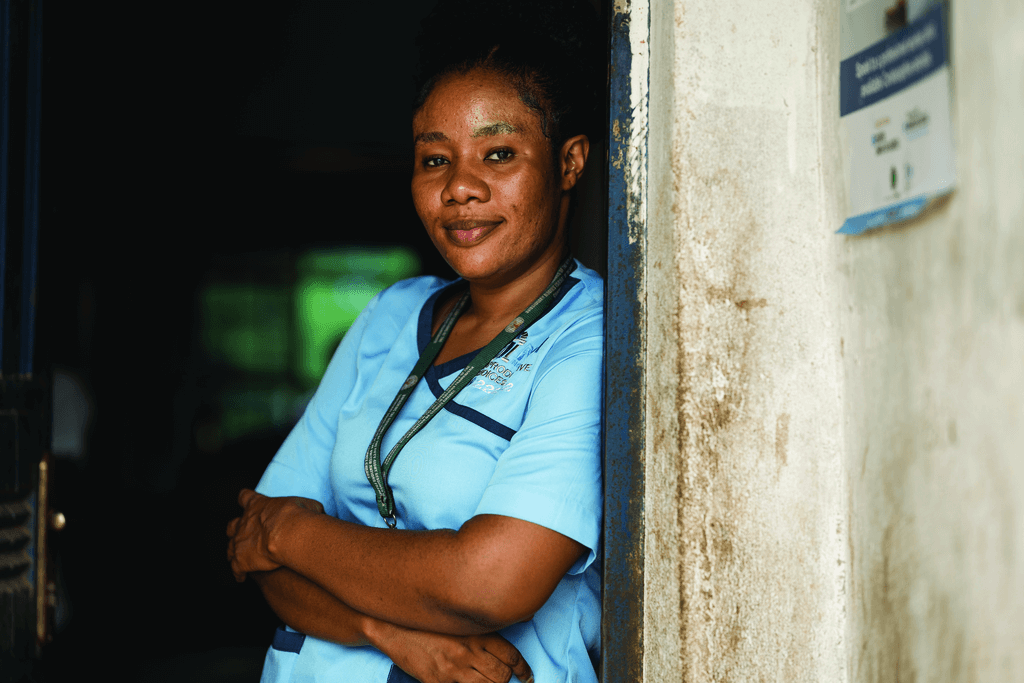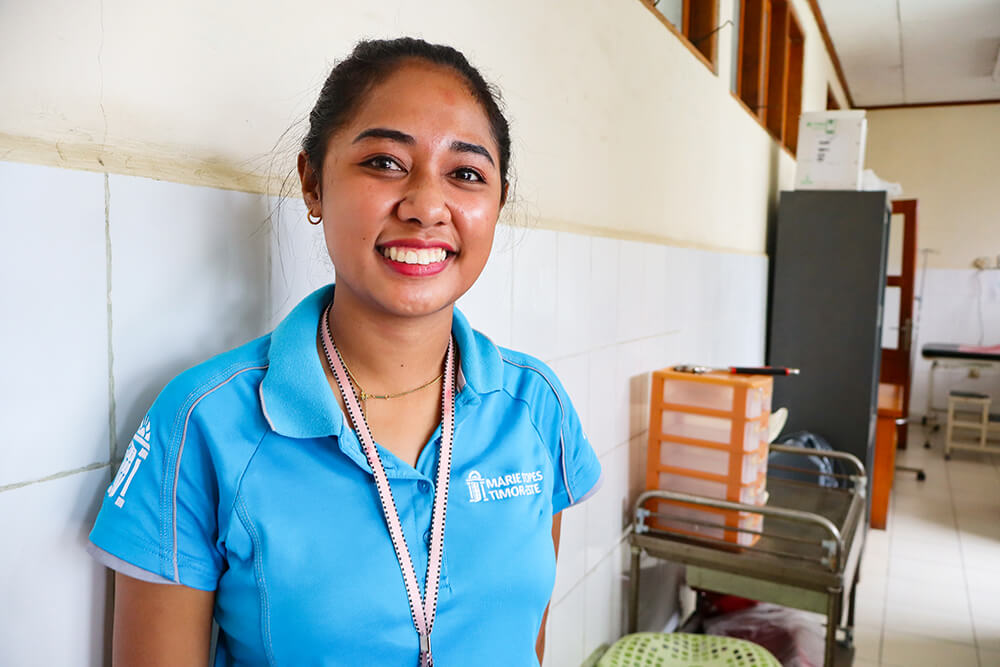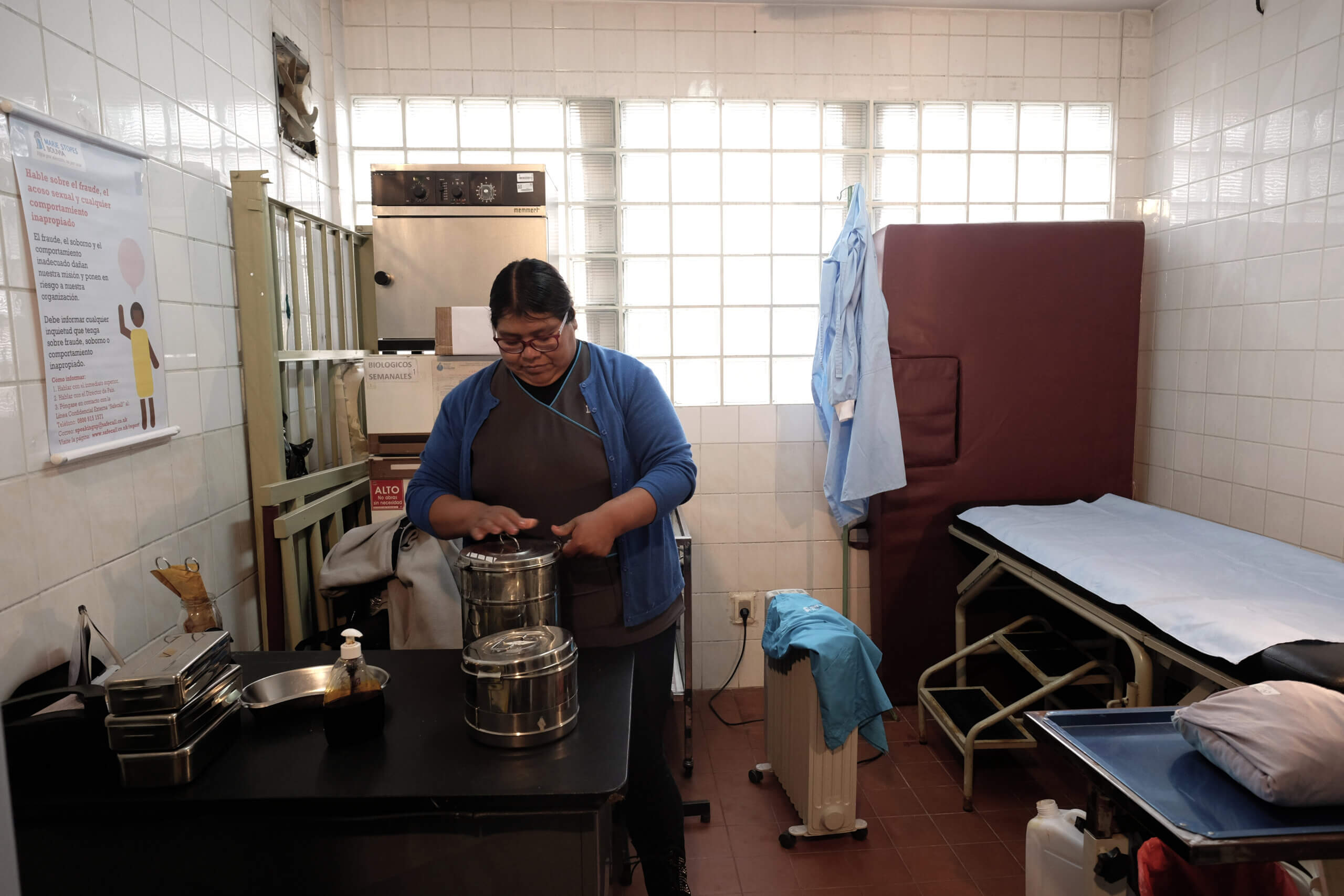Getting Goods from Here to There
It’s four o’clock in the morning in London and Chris Cavendish is already at his desk. He has a shipment of contraceptives delivering to Cambodia and there’s a problem with customs in Phnom Penh. As Director of Global Supply Chain for MSI Reproductive Choices, this is not an unfamiliar situation. A few phone calls to his contacts at the port, a few more to MSI teams members in Cambodia and it looks like the problem is solved. He’ll check back in a few hours to make sure MSI Cambodia has the shipment in hand.
Right Place, Right Time, Right Stuff
With operations in 36 countries, and a myriad of service delivery channels, Chris manages a complex supply chain. He works with suppliers and transportation services around the world to get dozens of different commodities to hundreds of distribution points in countries on six of the seven continents (MSI doesn’t provide services in Antarctica). Point A to Point B doesn’t begin to describe the critical path diagrams that Chris and his team manage.

MSI Centers, Outreach Teams, Ministries of Health Centers
MSI’s aim is to end unsafe abortion and ensure that every person who wants contraception can access it. That means seeing to it that a variety of family planning and abortion methods are not only legal in the country, but geographically and financially accessible. To meet that goal, MSI has built a multi-channel delivery system that includes:
- centers operated by MSI staff where no one is turned away for lack of financial resources,
- partnerships with government ministries of health, where MSI staff might be training government healthcare providers or working directly with clients to provide services,
- hundreds of outreach teams that travel to areas where there are no doctors, nurses, healthcare facilities or pharmacies,
- midwives who go door to door, delivering information, contraceptives and abortion pills to women in very remote areas, and
- a network of pharmacies and other healthcare facilities that are contracted to sell MSI branded contraceptives and abortion pills
Chris’ plan for getting arm implants to an outreach team in Tanzania is quite different from his plan for getting abortion medication to pharmacies throughout India.
MSI and the UNFPA
A large part of the reproductive healthcare commodities supply chain for international charities flows through the United Nations Family Planning Agency (UNFPA). Getting support from the UNFPA is its own complicated process. In very simple terms, it involves Country Programs working with Governments, Ministries and UNFPA to submit proposals alongside lots of calculations related to a country’s gross national income and population, and how great the need is. Once a grant is made, Chris’ team comes in to monitor progress against deliveries before managing the distribution of the products.
On average about 50% of MSI’s UNFPA grant is delivered directly to MSI country programs for use at our centers, by our outreach teams and the MS Ladies who travel to remote areas. The other 50% is delivered through government sites. MSI is working together with governments in a variety of ways to help strengthen public health systems. In Nigeria, for example, MSI advises at, or operates in, over 2,400 public health sites. In many, we have staff members on site, administering products that the government has received from the UNFPA. In another example, MSI outreach teams, who can spend up to three weeks on the road at a time, might pick-up supplies from government-managed facilities en route to remote areas.
Again, this is oversimplifying. To get an idea of how truly complex this is, in 2020, MSI had over 49,000 supply chain touch points in countries where UNFPA supplies exist.

Social Marketing
Getting commodities to our centers and government centers that MSI manages is just part of the MSI distribution picture. Another MSI strategy for making choice possible for more women is what we call our Social Marketing channel. This involves a network of hundreds of pharmacies, hospitals, clinics and other healthcare outlets where MSI branded contraceptives and abortion medication are sold. MSI contracts with manufactures in several countries to produce products to our specifications with our branding and packaging.
Right now, demand for contraception exceeds supply, and so there’s pressure to find new sources, and get existing partners to increase production. But, not every contraceptive is approved for use in every country. And not every manufacturer of contraceptive medication and devices is the same.
In most cases, medications and devices have to be submitted to a country’s regulatory authority for assessment. This too is a complicated process that Chris and his team oversee and can involve 1,000 page dossiers on the product’s molecular structure, results of clinical trials, stability, side effects, etc. Each registration takes between six months and five years. In some cases, commodities are pre-qualified by the World Health Organization or United Nation’s Family Planning Agency.
Working to source commodities from manufacturers around the world, Chris’s team collaborates with MSI’s medical development team to assess the quality of the products in the market. By working together, they ensure the best quality of products are not only purchased, but the integrity of those products remain intact by the time they’re administered to a client.

Challenges and resilience
The UNFPA and the Social Marketing supply chains are the two biggest segments of Chris’ supply chain, but there are other pieces as well. With so many different suppliers, travelling through just as many different channels, there’s no shortage of obstacles and bottlenecks. The time lapse between submitting a request and receiving products can cover months. Political unrest, administration changes, conflict, climate disasters, donor requirements and restrictions on sourcing and endless amounts of bureaucracy and miles of red tape can disrupt even the simplest of plans. Building resilience into the supply chain amid ongoing disruptions is a key focus for Chris.
At four o’clock in the afternoon, London time, Chris knows his supply chain managers in Nigeria, Tanzania and Madagascar will be wrapping up their days. Chris checks in with his team to confirm that everything went as scheduled with deliveries and they’re set for the following week.
Smart, resourceful and dedicated, Chris Cavendish is one of the many bold team members at MSI who embody the spirit of the organization and demonstrate their commitment to making choice possible every day.






